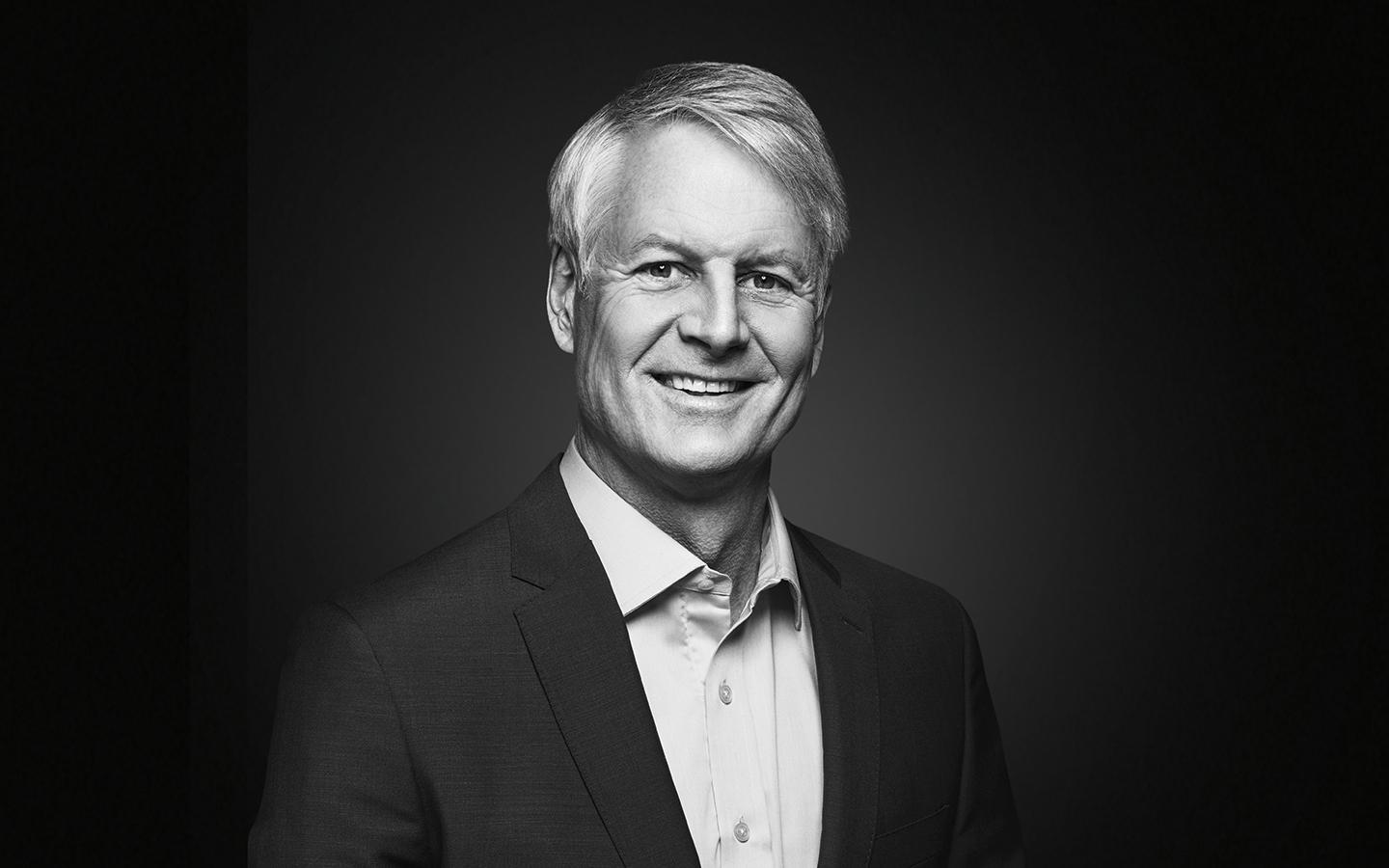“GETTING HELP IS A SIGN OF STRENGTH.”
Nike President and CEO John Donahoe ’82 reflects on servant leadership and the importance of investing in yourself.

Trustee Emeritus John Donahoe ’82, president and CEO of Nike, is a student of leadership. He first became interested in leadership as an undergrad at Dartmouth and has studied and observed how others successfully lead for much of his adult life. He says the most important leadership lessons haven’t come from fellow CEOs. Instead, his teachers have been coaches and athletes from the world of sports, who regularly must perform at the highest level, often with millions of people watching and second-guessing their every decision.
Following graduation from Dartmouth, Donahoe began his career at Bain & Company, where he remained for two decades, becoming the firm’s CEO in 1999. He then went on to serve as CEO of eBay and ServiceNow. He was appointed president and CEO of Nike in January 2020.
Donahoe served as a member the Dartmouth Board of Trustees from 2003 to 2012. His wife, Eileen Chamberlain Donahoe ’81, is a current trustee—they are the first couple to each serve on the board—and three of their four children are alumni. “One Dartmouth memory stands out above all others: my first date with Eileen,” says Donahoe. “So, drop the mic, there’s nothing else that compares.”
Donahoe points to a training conference he attended in the late 1980s that focused him on how sports can teach leadership lessons. The conference was entitled “The Business Athlete,” taught by Jim Loehr. Dr Loehr focused on elite athletes, saying: “Michael Jordan is the best basketball player in the world. And Michael Jordan views getting help as a sign of strength, not a sign of weakness. He doesn’t just have his bench coach, Phil Jackson—he also has a personal chef, a psychological coach, and multiple other coaches. Michael Jordan invests in himself, getting as much help as he can, so he can perform at the very highest levels in moments of pressure.”
Dr. Loehr went on to say:
“I don’t understand you businesspeople. You say that you want to perform at the highest levels, but you don’t take care of yourselves. You brag about how little sleep you need. You walk around like you have all of the answers and you never acknowledge that you have any weaknesses. And perhaps most concerning, you view getting help as a sign of weakness. If I were you, I would embrace the lessons from elite athletes and view getting help as a sign of strength.”
I was 28 or 29 when I heard that, and I thought it made so much sense. Since that time, I have aggressively consumed help. I’ve had the same personal therapist for more than 30 years. I have multiple coaches and mentors. I’ve had a Jesuit priest and Buddhist priest as spiritual advisors. I have close friends who act as my personal board of directors—we help one another on our toughest challenges and opportunities. To me, getting help is a sign of strength.
The Dartmouth experience was the absolute best training ground for leadership—it had a huge impact on my leadership journey in two ways. First, the liberal arts approach taught me how to take an integrative, rather than siloed, perspective. The whole world is siloed; there are experts everywhere. But almost all solutions to complicated problems come from an ability to recognize patterns that cross disciplines.
Second, the D-Plan forced me to learn how to deal with different types of people. You couldn’t just hang out for four years with the same small group of friends in your dorm or fraternity. The D-Plan wouldn’t allow that. You might have an LSA one term, then you were back on campus the next term, living in a different dorm with new roommates and hallmates. And because it was a small college environment, you couldn’t hide. I learned to deal with all different types of people, and I enjoyed that. It has been hugely valuable in today’s more diverse and inclusive world.

Today, I practice what I call servant leadership, which is founded on two principles: purpose and service. These are my two fundamental sources of inspiration; and being a servant leader means I’m here to serve the purpose of my organization, to serve our customers, to serve our employees, to serve the community in which we operate. The classic pyramid organizational chart has the CEO on top. With servant leadership, I think of an upside-down pyramid with our customers and communities at the top. They’re the reason we exist. And the people at the top of our internal organizational structure are those teammates who directly interact with our customers every day. As CEO, I’m at the very bottom of the organization because ultimately my job is to enable people in the organization to do whatever it takes to serve our purpose, our customers, and our communities in the most successful way.
It’s ironic that I’ve ended up at Nike because elite athletes and coaches have been my role models for my entire career. I’m sitting in my office at Nike, and on the wall you’ll see Phil Jackson, John Thompson, Tara VanDerveer, and Coach K, who has become a mentor and friend. Phil Jackson was the ultimate servant leader, right? He took five players who were more talented on the court than he’d ever been, got them to buy into a higher purpose, and trusted in them to come together as a team.
Observing these coaches has taught me so much about leadership over the years. And they have role-modeled four characteristics that I see in the best leaders.
- First, they’re relentlessly curious. Good leaders ask lots of questions. They know it’s a continuous learning journey, which is particularly important in our fast-changing world. No one has all the answers, and the challenge is how fast can you learn. The best leaders are “learn-it-alls,” not “know-it-alls.”
- Second, the best leaders are authentic. Good leaders can have different personalities or styles from one another. Being authentic means being consistent with who you are, and my observation is that talented people will only follow authentic leaders.
- Third, the best leaders make it about we, not about me. They’re not self-oriented. They put their team’s interests before their own, and their teams learn to trust that.
- Fourth—and this is probably the most important and the least talked about—is the importance of resilience. Doing anything significant in life is hard. There are going to be ups and downs. There’s nothing sexy or fun or cool about having the commitment, courage, and fortitude to do what it takes to succeed. Resilience is hard, but it’s an important dimension of being a good leader in any field.
As a student of leadership for decades, John Donahoe has read many books on the topic. Three he recommends: Eleven Rings: The Soul of Success by Phil Jackson, The Mindful Athlete: Secrets to Pure Performance by George Mumford, and The Untethered Soul: The Journey Beyond Yourself by Michael Singer.